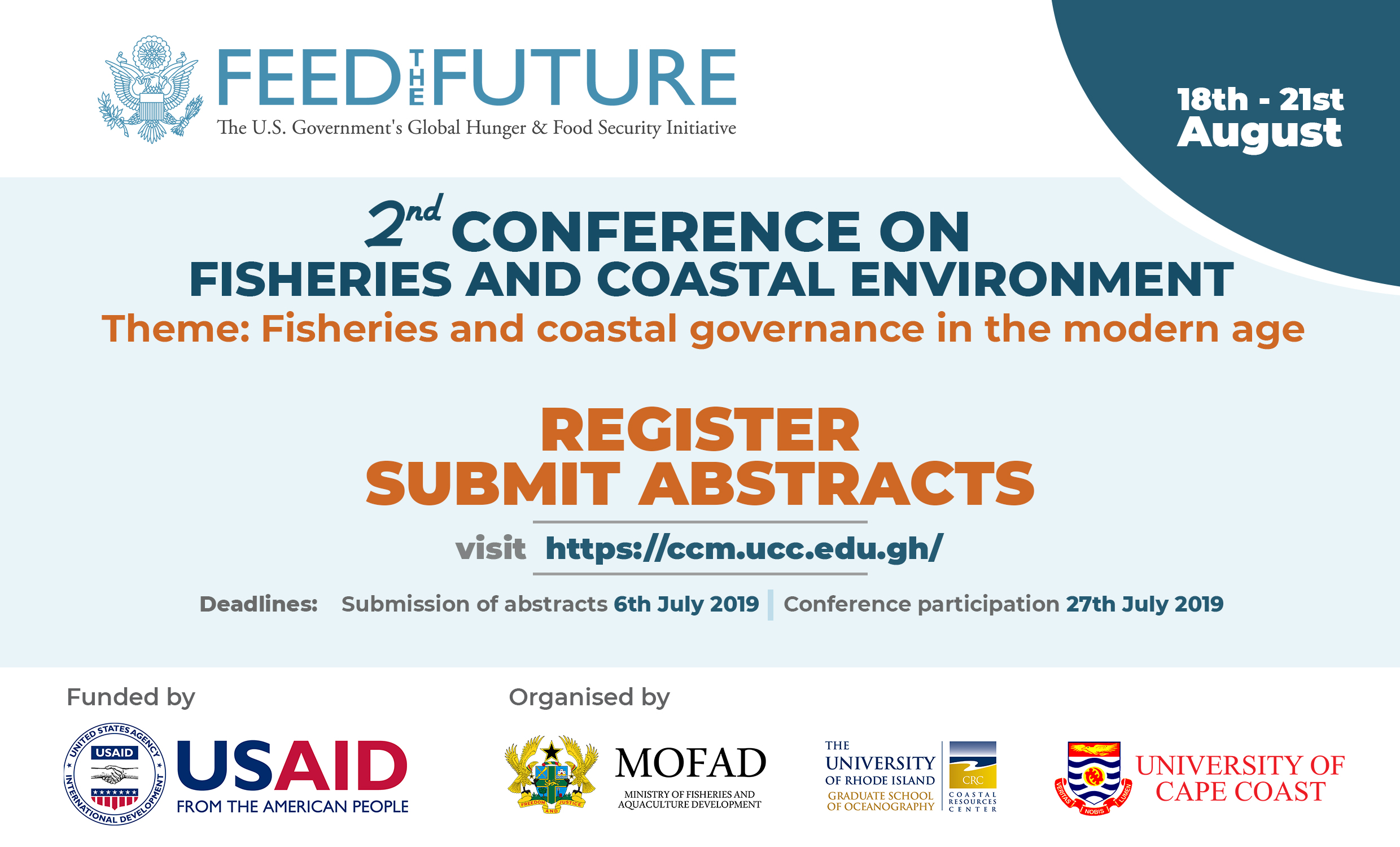2nd Conference on Fisheries & Coastal Environment
The Centre for Coastal Management (CCM) and the Department of Fisheries and Aquatic Sciences of the University of Cape Coast in collaboration with the University of Rhode Island (USA) with support from the United States Agency for International Development (USAID) is organising the second Conference on Fisheries and Coastal Environment (CFCE). These conferences are designed to strengthen policy linkages and enable policymakers, fishermen & fishmongers, researchers, journalists, and think tanks connect their voices to the sustainable fisheries and coastal development agenda of Ghana and the West African sub-region at large. The CFCE 2019 will provide an opportunity for stakeholders to discuss topical fisheries management issues such as closed seasons, oil and gas development, transhipment, sanitation, ocean governance, the blue economy, livelihoods, child labour and human trafficking as well as social resilience in coastal areas. This conference will feature panel discussions, keynote presentations and session papers. There will also be an opportunity for industry and market players to showcase their latest technologies.
Accepted abstracts will be published in a Book of Abstracts. Outcomes of the conference will be published as a Communique and resulting scientific papers accepted will be published in the peer reviewed Journal of Fisheries and the Coastal Management. The journal fills the void in the current literature on African fisheries science, coastal management strategies and policy issues.
Papers are invited to discuss a range of themes that include, but are not limited to:
- Fisheries and coastal governance and policy: To address various issues including overcapacity and overfishing, etc. It will provide critical scientific information needs for policy making in fisheries and the coastal environment.
- Fisheries economics and value chains: Post-harvest processes, transport and handling, standards, labelling and certification, marketing, etc.
- Ocean and coastal management: Coastal mapping and analysis, GIS techniques and applications for fisheries and coastal zone management, modelling and simulations of fisheries and coastal environmental issues, coastal protection (erosion, tidal waves, etc.)
- Marine and coastal environment: environmental stressors and pollution control, marine protected areas and biodiversity conservation, climate change and adaptation, etc.
- Marine and coastal businesses: oil and gas development and exploration, local content, corporate social responsibility and corporate environmental management, industrial ecology, eco-tourism, recreation, etc.
- Mariculture and green businesses for the coastal environment: Culture potential of coastal and marine organisms, biology of culture species, growth performance of culture species, business and profitability models, etc.
- Illegal, unreported and unregulated fishing practices: Fish transshipment, unauthorized fishing gears, unapproved fishing zones, target species and sizes, etc.
- Livelihoods and poverty reduction in coastal areas: Supplementary livelihoods, education, etc.
- Child labour and trafficking: Fisher migration, demographic shifts, etc.


